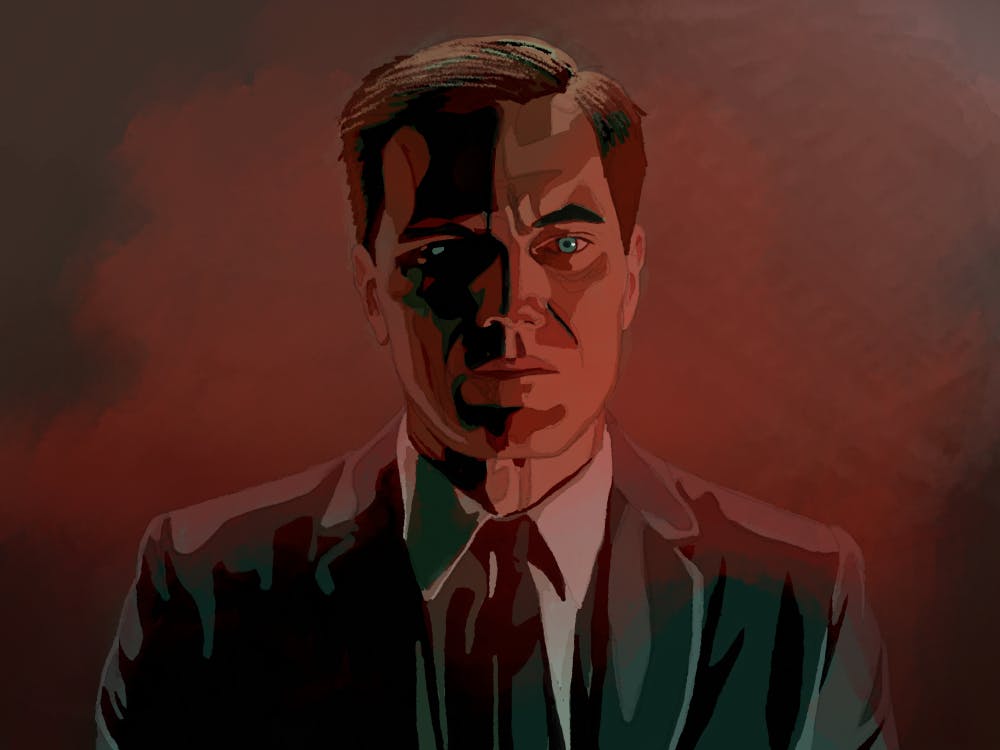Stone–faced killer, religious workaholic, and a man of great stature: Michael Shannon is drama’s most understated villain. He’s known for his roles as Strickland in The Shape of Water, General Zod in Man of Steel, and Nelson Van Alden in Boardwalk Empire—three antagonists, drastically different in character and story, but all played with the same nuanced intensity.
Every story needs conflict, and every conflict breeds different characterizations of hardships and evils—nature at her most ruthless, aliens that threaten the future of humanity, and man, at his worst. Shannon is a master of the latter, often depicting men on the screen who are far less than good.
In The Shape of Water, Strickland is the brutal colonel who stands between an amphibian god’s life and death by human hand. He is violent and cruelly self–centered, acting throughout the film in only his own best interest and for his own benefit. General Zod, too, destroys personal relationships and endangers the existence of all humanity on Earth, and Van Alden kills his associate and conceives a child out of adultery.
Pure evil provides an easy opposing force for a protagonist to fight against, but it often falls short in developing a memorable overall story. Shannon’s evil is never just "pure evil"—instead, it’s always accompanied by a shade of off–white, wherein his character’s actions are steeped in obsessions over morality. Shannon creates men who are clearly wrong in all that they do, yet compelling to watch because their degeneracy plays off of staunch devotions to a twisted set of personal morals. Van Alden is Boardwalk Empire’s puritanical fundamentalist, who throws himself into carrying out what he deems is right so violently that he eventually becomes a caricature of the lawbreakers who he lives to destroy. His first homicide victim in the show is his colleague, who he drowns in a river during a religious ceremony—the killing marks Van Alden’s descent into a state that pits his morality against his work ethic and forces him deep into a web of emotional self–denial.
The same applies to General Zod and Strickland, who both act upon their own beliefs and ethics, despite the recoil from everything and everyone around them. Notable is General Zod’s monologue to Clark in Man of Steel, where Shannon says, “Every action I take, no matter how violent, or how cruel, is for the greater good of my people.”
Shannon's body language also clearly depicts an unclear villain. This is appropriately shown in Take Shelter, a psychological thriller that follows Curtis (Shannon), as he begins obsessing over a dreamt–up apocalypse. The film gives Shannon space to breathe—it showcases long, empty, close–up shots of the actor, often soaking in tension and fear. But perhaps a better example of Shannon’s villainy isn't even depicted in a feature–length film and doesn’t even cast Shannon as a villain. Zamboni Man, a 2004 short film directed by Seth Henrikson, stars Shannon as the Zamboni man in an ice rink. Ignored and disrespected by the rink’s patrons, Shannon only shares one line of spoken dialogue with another person. Instead of speaking, he fills 13 minutes with quiet frustration depicted through stolid body language and subtle facial expressions. When you take this natural talent and translate it to a longer film or show, where Shannon is given time to develop characters into whatever great moral evil they may be, and it's clear why his characters are so effective.
Shannon stretches the limits of on–screen evil by testing the viewer’s own morality, exploring the effects and consequences of spiraling into moral descent, while still believing that one’s actions are rooted in good intentions. When does fighting for your family become too violent? How far should a man go to satisfy his religion? Watch a Michael Shannon film to find out.

